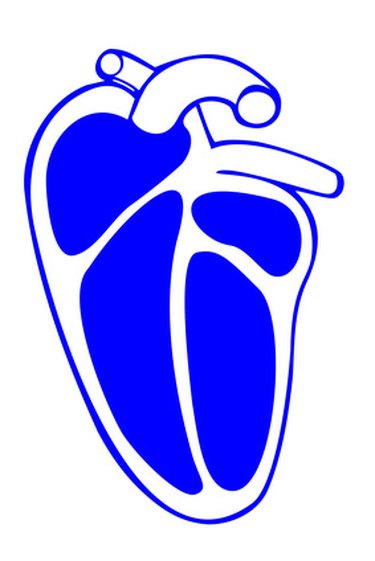Things You'll Need
Styrofoam
Wood dowel 24 inches long
Plastic wrap
Clay
Sculpting tools, such as awl, ice pick, manicuring stick or butter knife
Oven
Acrylic paints
Paintbrushes

Making a 3-D heart model is a project that is often assigned to children in biology or another science class. Making the model of the heart helps the child understand how the heart looks and works because she forms each part with her own hands. School is not the only use for a 3-D heart model, however. A heart model can also be used for decorative purposes, such as in a doctor's office, or even as an unusual gift.
Step 1
Shove the end of the wood dowel through the piece of Styrofoam. This will make a perch that you can use to make the heart model, and you will not have to touch it with your hands.
Video of the Day
Step 2
Make the base outline of the shape with the plastic wrap. You will need four heart ventricles, and the veins and arteries leading to and from the heart. Hold the plastic on the top of the dowel with plastic wrap.
Step 3
Work the clay between your hands until it is soft and pliable. Press the clay around the plastic wrap model on the dowel rod. Shape the clay into the correct heart shapes with your fingers as much as possible. It works best if you form one part of the heart at a time. This will help the heart look more realistic.
Step 4
Add extra sculpting and details with your sculpting tools. Give the heart small blood vessels and fat clumps. Open the inside of the arteries and veins with the knife to make them 3-D.
Step 5
Allow the clay to dry for 24 hours. If the clay must bake in the oven, remove the plastic wrap from inside the heart model to prevent it from melting. Bake according to the package directions. Allow the heart to cool.
Step 6
Paint the heart in realistic colors. You can also use the commonly used color-coding system of blue and red to distinguish the arteries from the veins. You can color each ventricle of the heart a different color if desired. Allow the paint to dry for at least 2 hours.
Video of the Day